“Everyone will come back. No matter what”
Internally displaced persons from Debaltseve told The Day their own stories, as well as the stories of the things they salvaged from the shelling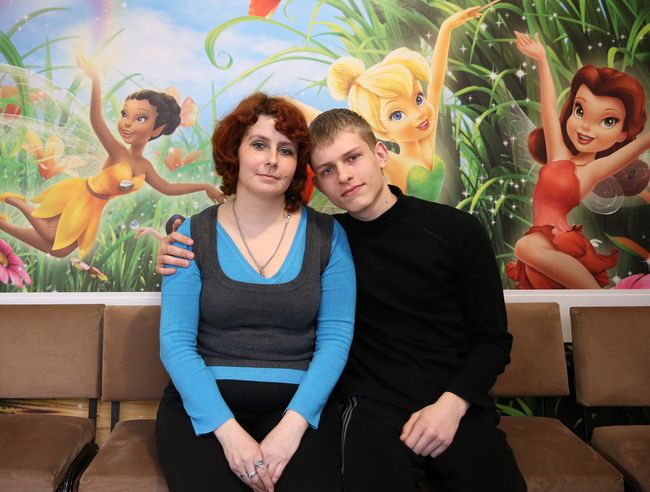
Many Debaltseve residents fled the warzone towards Sviatohirsk. This small town in Donetsk oblast is crowded with pine forests; there are many children’s camps and resorts. We visited ‘The Pearl of Donetsk Region,’ one of such facilities. The people there reminisced about their abandoned homes and were showing things they had taken into the peaceful yet stressful life they have now.
A LAPTOP
In the end of January, Oksana left Debaltseve towards Sviatohirsk along with her son, mother, and mother-in-law. Anton, her 19-years-old son has disabilities.
“Our house stood untouched as we left. After that, around ten bombs hit it. Our home is beyond repair,” says Oksana.
The family lived the previous six months in the basements. “We were hoping to remain home until the end, but the nerves have their limits,” admits Oksana. “We completely depend on electricity, but this winter we had none of it, neither did we have water or heating. We were hungry and unable to bathe.” When Debaltseve became a target of major bombardments, a humanitarian aid arrived: some bread, cereals. But how can one prepare food without electricity? Somehow they boiled the water on a metal grid placed upon a stone, and thus survived.
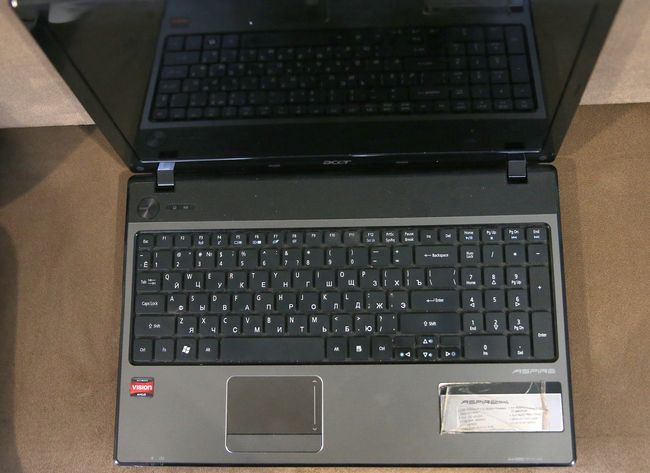
Oksana had worked as a railroad conductor in Luhansk for eight years. “I feel utterly hopeless. I don’t know where to go, or if anybody needs us at all.” The family evacuated in a hurry, and some important documents were left behind. Her son is happy, because he managed to salvage a laptop. Anton always carries it with him in Sviatohirsk.
A HAIR CLIPPER
Yulia, Yura, and Vadyk, their son, left Debaltseve three weeks ago. “The volunteers came to our shelters and persuaded us to leave. At first many were reluctant, but then some agreed. The next day the buses arrived and took us away,” reminisces Yulia, “We were not afraid while we were in the “bombyk” [the bomb shelter], as we became accustomed to it since the summer. Usually, we spent our evenings there. We were able to leave for shopping or some other business.”
The shops in Debaltseve had been operational until there was food. The electricity was long gone, but they still traded bread, cakes, and candies. For some time there was free bread from Artemivsk and other humanitarian aid.
Yura’s job was at a railway crossing. He took a little work bag to Sviatohirsk – previously he used to carry lunches in it. Inside the bag there are pliers, thread – such things are always at hand in the “bombyk.” At the last moment he grabbed a hair clipper – the son needs his haircuts.
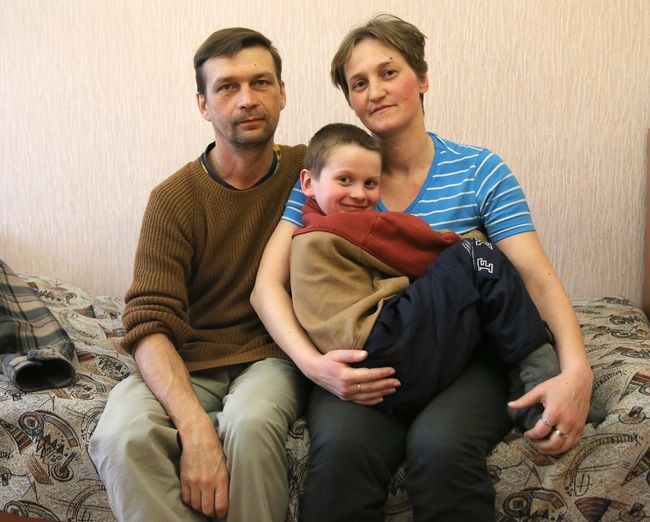

The family is homesick. And again, the permits pose a problem. The document can be applied for in Artemivsk, but the cost of travelling there is 110 hryvnias for one person. Additionally, it might be necessary to spend a night there, and therefore, they would need more money for food. And the permit will be ready in a few days – again the same expenses to receive it. The displaced people have their hopes in the volunteers, who promised to bring to Sviatohirsk the officials able to issue the permits.
21-year-old Roma, the elder of Yulia’s sons, is still in Debaltseve. They have no contact with him. The man remained in the city with his girlfriend, and he also wanted to watch the dog. When they were finally ready to move, the road was blocked. The other son, Vadyk, is 6. They wanted to send him to school in the autumn, but this was postponed for a year. Yulia shrugs: “What is the point of studying in this year?” Vadyk smiles: “I didn’t go to school because of the war,” and then places his head on mother’s lap.
“I lived all my life in the city, and now I am required a permit to return there,” Yulia says in bewilderment. “Even in case our house is no more, we still need to go back and see how things are going there. And city will certainly need a decent rebuilding effort. I am sure that everyone will come back. No matter what.”
A SCREWDRIVER AND A PAIR OF PLIERS
Olena Hryhorivna arrived to Sviatohirsk from Debaltseve on February 4. Her two daughters, son-in-law, granddaughter with her husband, and her three-month-old great-grand-daughter had already come here earlier. “It is a perfect place,” she describes Sviatohirsk. “For more than a month the electricity, water, and heating in Debaltseve had gone out – and then there were constant bombardments you had to endure. Here the life is calm; we have both hot and cold water. Everyone here is welcoming, nobody says a word against us. But I am still homesick.”
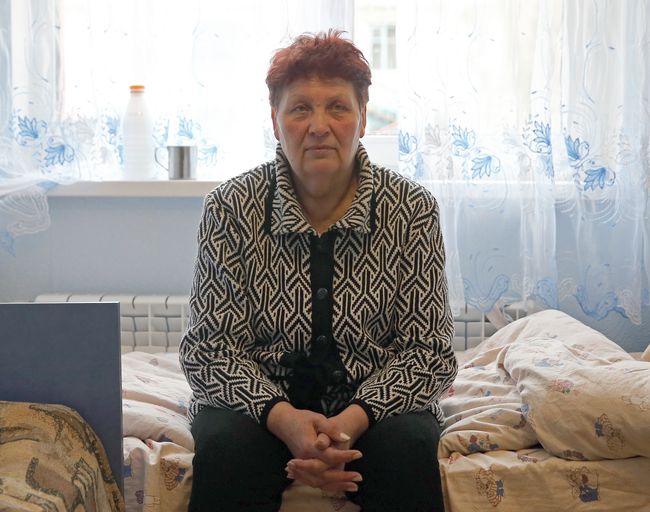
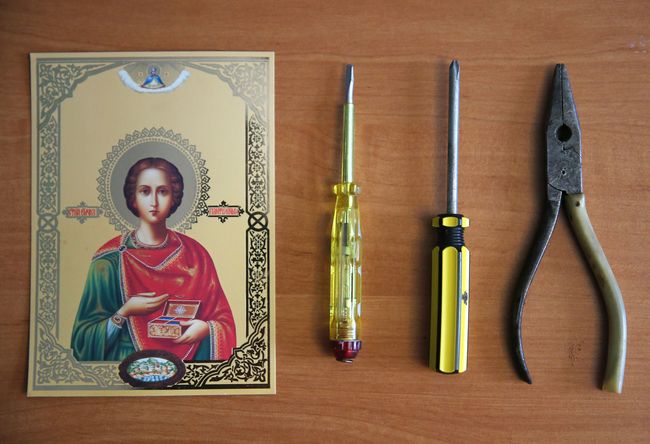
The lady left Debaltseve thanks to the help of Oleh, a volunteer. “I was living on the eighth floor. The projectiles were traded from one side of our house to the other, flying overhead. At some moment it reached a critical point for me, and I no longer feared the shelling. Just packed my things and left,” admits Olena Hryhorivna. On her way she helped evacuating other people. Oleh, the volunteer who drove the car, had a list of addresses of persons with disabilities. Olena gave the necessary directions and they rescued more than ten people, moving them to other cities.
To the evacuation, Olena Hryhorivna took medicine, documents, clothing, thread and a needle, icons, a screwdriver, and a small pair of pliers. She is accustomed to having some tools at hand, because she was educated to be a mechanical technician and used to fix electric utensils before her retirement.
At first, her dreams were of shellings. She woke up and began to dress quickly in order to hide in the basement, only to be stopped by neighbors, who reminded her that she is safe now. She wants to return home one day, despite all the risk. She regrets to have left behind all the property she earned throughout her life. The most valuable things – a TV, a computer – she has hidden in the closet and covered with pillows. It is unfortunate, she says, that the apartment might be looted by marauders.
Her son-in-law works as a track worker on the railroad. He is frequently called to restore the railway network. The family awaits the permits to be issued. “The Ukrainians who stood in Debaltseve are very good people. They brought us water, food, cigarettes, and humanitarian aid. I am unsure of what will happen after DNR claims authority over this place,” contemplates Olena Hryhorivna.
Author
Maria ProkopenkoSection
Society





